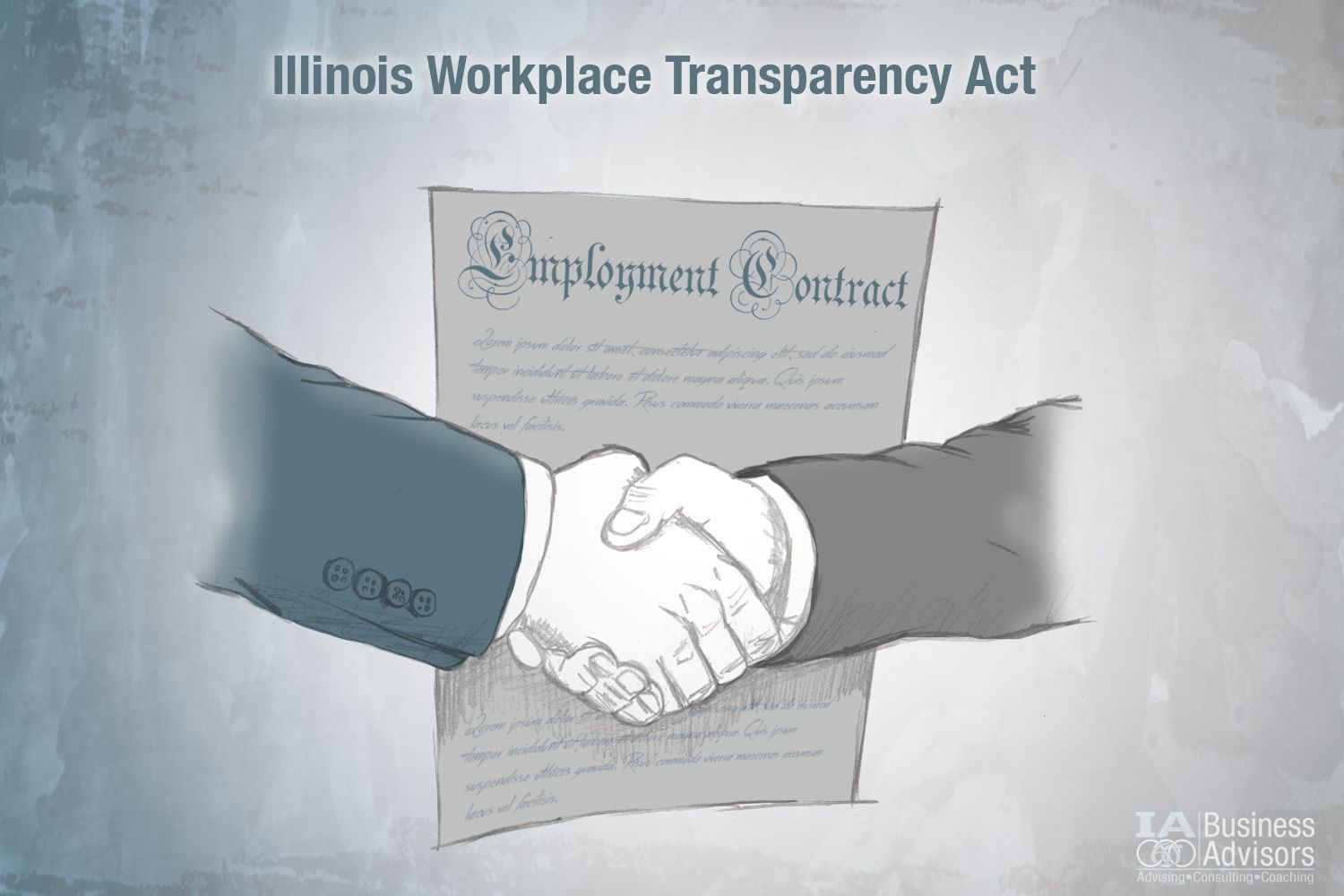Illinois Workplace Transparency Act

Illinois workplace consulting
Effective January 1, 2020, all employers who contract with employees and non-employees (including all contractors) should review, and likely revise, all employment agreements, including separation/severance agreements because all noncompliant agreements will now be void .
Here are the three types of agreements regulated:
- Employment agreements containing nondisclosure or nondisparagement provisions
- Employment agreements containing arbitration provisions
- Employment agreements containing confidentiality provisions
The Workplace Transparency Act (WTA) prohibits employers from contractually restricting a prospective, current, or former employee’s ability to report allegations of unlawful conduct, including discrimination, harassment, and retaliation, for investigation by authorities. It also prohibits unilateral conditions of employment that prevent a current or prospective employee from reporting unlawful discrimination, harassment, or retaliation. In addition, the WTA also bars unilaterally requiring that a current or prospective employee waive, arbitrate, “or otherwise diminish” existing or future claims, rights, or benefits related to unlawful discrimination, harassment, or retaliation.
Provisions that would be void in a unilateral agreement under the WTA may be allowed if an employer and the current or prospective employee mutually agree to it in writing, and the agreement reflects “actual, knowing, and bargained-for consideration” from both parties. The agreement must acknowledge the employee’s right to:
- Report a good-faith belief of an unlawful employment practice or criminal conduct to the appropriate governmental authorities;
- Participate in governmental proceedings;
- Make truthful statements or disclosures as required by law, regulation, or legal process;
- Seek or receive legal advice.
If the employer does not comply with these requirements, the WTA establishes a rebuttable presumption that the condition is unilateral and void as against public policy.
The WTA permits confidentiality provisions in settlement and termination agreements with prospective, current, and former employees if the provisions comply with certain new requirements. The agreement must state that the employee prefers confidentiality and the provision’s inclusion in the agreement is mutually beneficial. The employer must provide the employee written notification of the right to have an attorney or representative review the agreement. There also must be valid, bargained-for consideration exchanged.
Employers cannot include any waiver of claims that accrue after execution of the agreement. The employee must have 21 calendar days to consider and execute the agreement, although the employee may sign the agreement before the end of the review period. The employee must have seven calendar days following execution of the agreement to revoke it. The agreement is not effective until the revocation period expires, but the WTA allows the employee to waive the right to revoke. Finally, the employer cannot unilaterally bar an employee from making truthful statements or disclosures about unlawful employment practices. Failure to follow these requirements voids the confidentiality provision as against public policy.
The WTA permits employers to include waivers and releases for claims that accrued before execution of the agreement. Moreover, employers may require confidentiality from:
- Employees who receive or investigate complaints from others or have access to confidential personnel information;
- Employees or third-party participants in investigations who must maintain confidentiality;
- Employees or third-party recipients of attorney work product or attorney-client privileged communications;
- Individuals who are legally subject to a recognized privilege;
- Third parties engaged by the employer for investigations of unlawful employment practices.
The post Illinois Workplace Transparency Act appeared first on IA Business Advisors.












